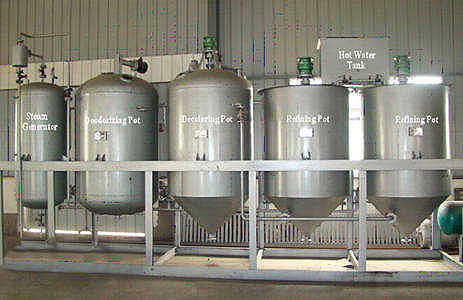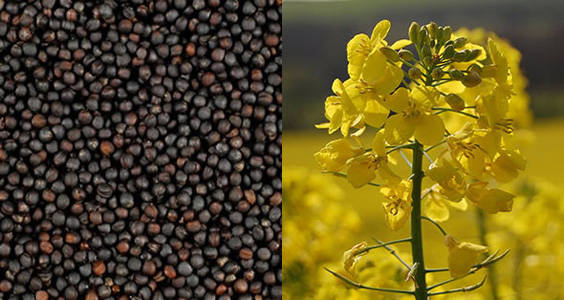- Choose professional Small Sunflower Seed Oil Refinery Line
- Professionally Designed Mini Oil Mill for Home Use
- Is Small Oil Production Line Worth for Investment?
- How to Build Small Edible Oil Production Line?
- Small Oil Mill Plant for Daily Requirement
- Small Edible Oil Refinery Plant Cost Can Be Reduced Relatively
- How to Extract Palm Oil from Palm Fruit-Oil Mill Plant
- start oil extraction factory
canola oil processing unit
Ever thinking of strat a small or medium canola oil processing unit to change these plants int more usful oil or biodiesel? If you are interested in this, here will be the right place to start!
Canola Seed Processing:Following preconditioning, canola seed is next crushed and flaked and then heated slightly. These processes help to maximize oil recovery. The canola flakes are then "prepressed" in screw presses or expellers to reduce the oil content from about 42% in the seed (on an 8% moisture basis) to between 16-20%. Screw pressing also compresses the flakes into more dense cakes (called "press cake") which facilitates oil extraction.
Canola Oil Pressing: The de-hulled rapeseed meats are then squeezed using a screw oil press, usually under elevated temperatures, to extract the crude rapeseed oil. At that point, the oil can be de-gummed, filtered, and sold as rapeseed oil. There is one final step involved to make true canola oil.
Removal of Euricic Acid: The main difference between rapeseed oil and canola oil is the level of euricic acid. This acid is in fact a bit toxic to humans in high doses. It's that fact that led to canola oil's development. The euricic acid can be removed by steam stripping some fatty acids from the rapeseed oil, or it can be done chemically by using an alkali treatment to neutralize the acid.
Small Canola Oil Processing Unit

Advantage of the Small Oil Refinery Plant
- Easy to Operate
- Easy to Transport& Install
- Light Weight and Movable
- Can Change Different Kinds of Oil Easily
- Full Function but needs less space.
An Overview of Canola and Canola Oil

Canola oil accounts for approximately 88% of salad and cooking oils, 71% of shortening oils, and 53% of margarine oils. Canola oil is used for similar purposes in the United States, where it represents 7% of total vegetable oil use.
Canola is an oilseed crop that was developed from traditional rapeseed by Canadian plant breeders during the 1970's. It is grown widely across Canada, several European countries, and Australia, and to a lesser extent in the United States. Canola is distinguished from traditional rapeseed by the greatly reduced levels of the fatty acid, erucic acid and anti-nutritional compounds called glucosinolates.
Canola refers to a cultivar of either Rapeseed or field mustard. Its seeds are used to produce edible oil suitable for consumption by humans and livestock. The oil is also suitable for use as biodiesel. Canola oil is the preferred oil for use in both countries because it is the oil lowest in saturated fats. Canola meal is the by-product of canola oil processing. It is used as a high-protein feed ingredient in the rations of poultry, swine, cattle and fish.
Don't hesitate to contact us if feel interest in the canola oil processing unit. We are always at your service!

 Français
Français Русский
Русский Español
Español